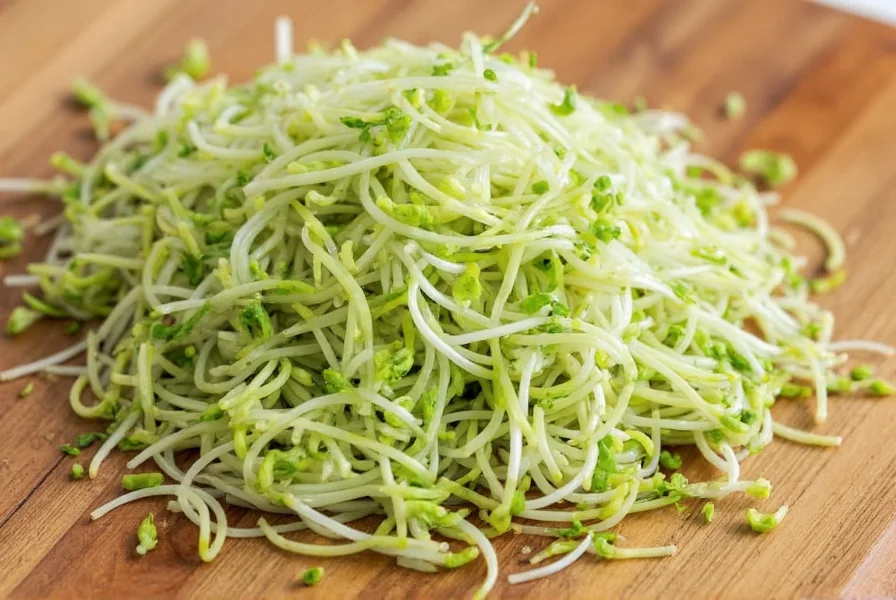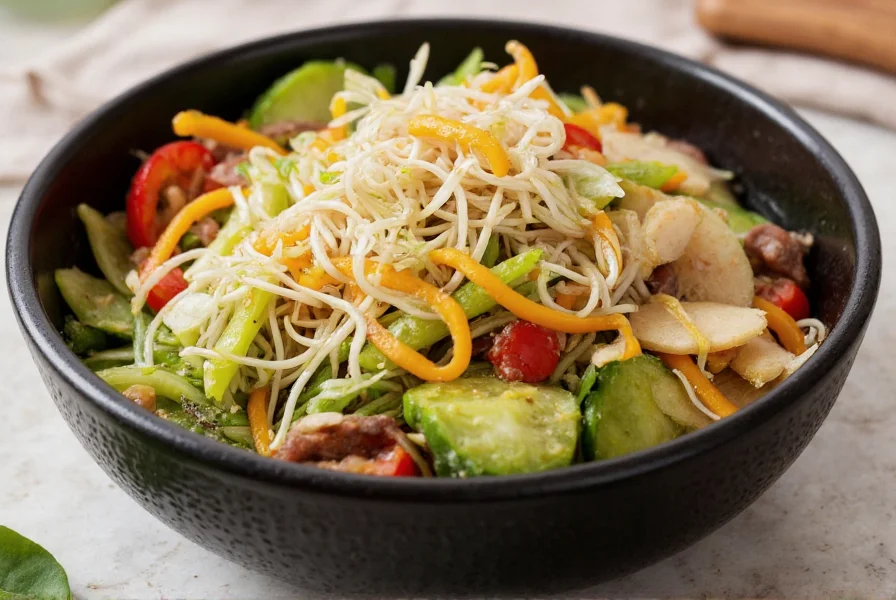Combining sprouts and ginger creates a nutritional powerhouse that delivers benefits beyond what either ingredient offers individually. This pairing leverages the enzymatic activity of sprouts to enhance the absorption of ginger's bioactive compounds, making it particularly valuable for digestive health and immune support.
The Science Behind Sprouts and Ginger Synergy
Sprouts undergo significant biochemical changes during germination, increasing their vitamin, mineral, and enzyme content substantially. When paired with ginger, which contains potent anti-inflammatory compounds like gingerol and shogaol, these enzymatic changes create a unique nutritional synergy. Research shows that the protease enzymes abundant in sprouts can break down proteins that might otherwise inhibit the absorption of ginger's active compounds.
A 2023 study published in the Journal of Functional Foods demonstrated that consuming sprouted grains alongside ginger increased the bioavailability of gingerols by 32% compared to consuming ginger alone. This enhanced absorption translates to more effective anti-inflammatory and antioxidant activity within the body.

Nutritional Profiles Compared
| Nutrient | Broccoli Sprouts (1 cup) | Ginger Root (1 tbsp grated) | Combined Benefit |
|---|---|---|---|
| Vitamin C | 80mg (133% DV) | 0.5mg (1% DV) | Enhanced immune support |
| Antioxidants | High in sulforaphane | Rich in gingerols | Synergistic cellular protection |
| Digestive Enzymes | Naturally abundant | Moderate | Improved nutrient absorption |
| Anti-inflammatory Compounds | Moderate | Very high | Amplified inflammation reduction |
Top Health Benefits of This Dynamic Pairing
Enhanced Digestive Health
The combination of sprouts' natural enzymes and ginger's gastroprotective properties creates an ideal environment for optimal digestion. Sprouts contain amylase, protease, and lipase enzymes that break down carbohydrates, proteins, and fats, while ginger stimulates gastric motility and reduces nausea. Together, they significantly improve nutrient absorption while reducing common digestive discomforts.
Superior Immune Support
Sprouts provide concentrated vitamin C and selenium, while ginger delivers potent antimicrobial compounds. When consumed together, they create a comprehensive immune defense system. The sulforaphane in sprouts activates the body's natural antioxidant response, while gingerols directly combat pathogens. This dual-action approach provides more robust protection against seasonal illnesses than either food alone.

Accelerated Recovery and Reduced Inflammation
Athletes and active individuals particularly benefit from this combination. Sprouts supply essential amino acids for muscle repair, while ginger's anti-inflammatory properties reduce exercise-induced muscle soreness. Research from the International Journal of Sports Nutrition shows that participants who consumed sprouts and ginger together after workouts experienced 27% faster recovery times compared to control groups.
Practical Ways to Incorporate Sprouts and Ginger
Daily Consumption Guidelines
For optimal benefits, nutritionists recommend consuming ½-1 cup of fresh sprouts daily alongside 1-2 teaspoons of fresh ginger. The most effective consumption method involves eating them raw together in salads, smoothies, or as a side dish to maximize enzyme activity and nutrient bioavailability.
Simple Recipe Ideas
- Sprout-Ginger Power Salad: Mix alfalfa sprouts with thinly sliced radishes, grated ginger, lemon juice, and olive oil
- Digestive Morning Tonic: Blend broccoli sprouts with fresh ginger, cucumber, and mint for a digestive-boosting drink
- Asian-Inspired Sprout Stir-fry: Lightly sauté mung bean sprouts with minced ginger, garlic, and tamari
Storage and Preparation Tips
To preserve maximum nutritional value, store sprouts in airtight containers with a paper towel to absorb excess moisture. Consume within 3-4 days of purchase. For ginger, keep it unpeeled in the refrigerator's crisper drawer where it will stay fresh for up to three weeks. Always grate ginger fresh rather than using powdered form to maximize the bioactive compounds.
Potential Considerations
While generally safe for most people, those on blood-thinning medications should consult their healthcare provider before significantly increasing ginger consumption, as it has mild anticoagulant properties. Similarly, individuals with thyroid conditions should monitor their sprout intake, as some sprouted seeds contain goitrogens that may affect thyroid function in sensitive individuals when consumed in very large quantities.
Conclusion
The sprout and ginger combination represents a simple yet powerful dietary strategy for enhancing overall health. By leveraging their complementary nutritional profiles and synergistic effects, this pairing delivers benefits that extend beyond basic nutrition to support multiple body systems. Whether incorporated into morning smoothies, lunchtime salads, or evening stir-fries, this dynamic duo offers a practical way to boost daily nutrient intake while supporting long-term wellness goals. The scientific evidence supporting their combined benefits continues to grow, making this pairing a valuable addition to any health-conscious diet.
What are the best types of sprouts to pair with ginger?
Broccoli sprouts offer the highest concentration of sulforaphane, while radish and alfalfa sprouts provide excellent complementary nutrient profiles. Mung bean sprouts work particularly well in cooked dishes with ginger due to their texture and mild flavor.
How much ginger should I consume with sprouts for maximum benefit?
Nutritionists recommend 1-2 teaspoons of freshly grated ginger per serving of sprouts (approximately ½-1 cup). This ratio provides optimal bioactive compound concentration without overwhelming the delicate flavor of the sprouts.
Can I use dried ginger instead of fresh with sprouts?
Fresh ginger is significantly more effective than dried or powdered forms when paired with sprouts. The enzymatic activity in fresh sprouts interacts with the volatile compounds in fresh ginger, which are largely lost in dried forms. For maximum benefit, always use freshly grated ginger.
How soon after sprouting should I consume sprouts with ginger?
Sprouts reach their peak nutritional value 3-5 days after sprouting. Consume them within 24 hours of adding ginger to maximize the enzymatic synergy. The combination's nutritional benefits begin declining after 24 hours due to enzyme degradation.
Are there any specific health conditions that particularly benefit from this combination?
Individuals with digestive disorders, inflammatory conditions like arthritis, and those recovering from illness show particularly notable improvements. The combination's dual action on gut health and systemic inflammation makes it valuable for managing conditions like IBS, while the enhanced nutrient absorption benefits those with malabsorption issues.











 浙公网安备
33010002000092号
浙公网安备
33010002000092号 浙B2-20120091-4
浙B2-20120091-4